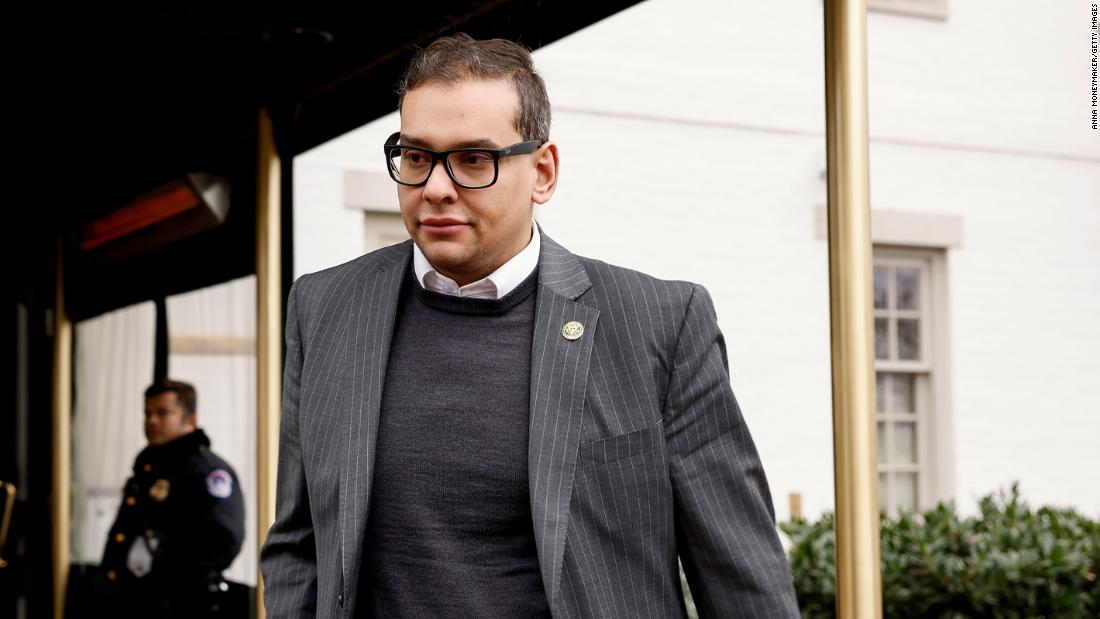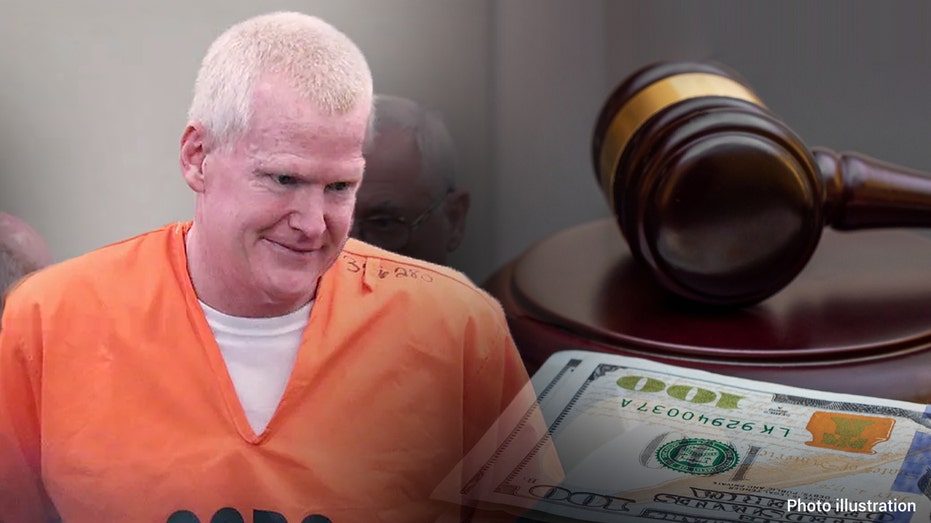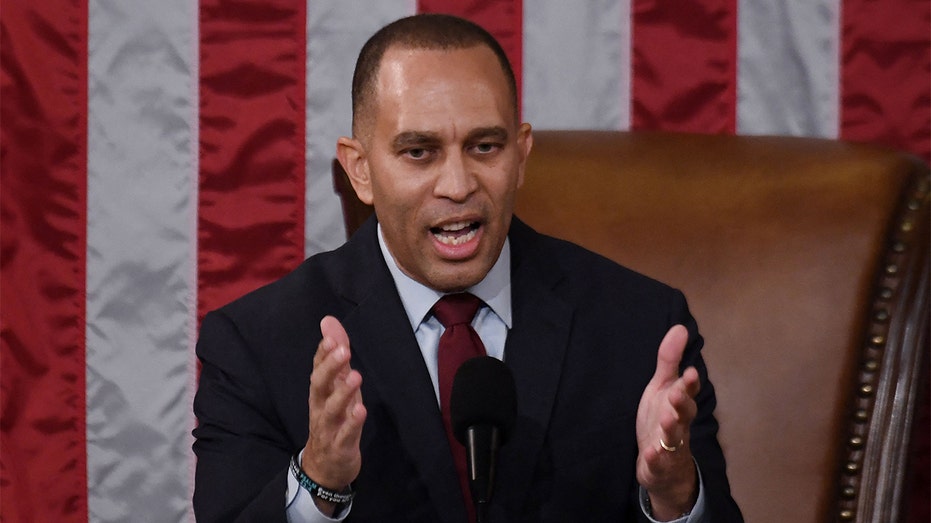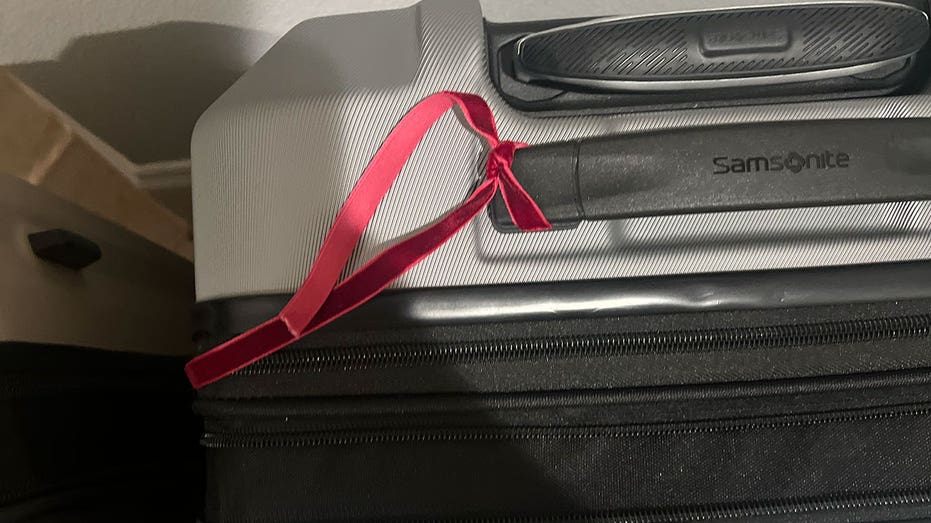- by foxnews
- 15 Jan 2025
What to know about the charges against George Santos and what happens next

Rep. George Santos has been charged in a federal criminal probe that - from a legal standpoint - won't affect his status as a member of Congress but will ensnare him in a potentially yearslong court process that could result in a sentence of several years in prison.
The Long Island congressman, who has an extraordinary trail of falsehoods that emerged soon after he was elected and helped cement the narrow GOP House majority, pleaded not guilty on Wednesday to charges that range from wire fraud to theft of public money to false statements on his House disclosure reports.
Santos is accused of funneling contributions meant to support his campaigns into his personal bank accounts, from where it was spent on luxury clothes and paying off debt. Prosecutors also allege he fraudulently applied for and received Covid-related unemployment benefits while receiving a six-figure salary working for an investment firm.
If convicted of the top counts in the indictment, Santos faces a maximum penalty of 20 years in prison, according to the Justice Department, though it's more likely he'd receive a much lesser sentence.
Here's what to know about the significance of the charges and what happens next:
The indictment lays out three main buckets of alleged criminal activity by Santos.
The first scheme described by prosecutors are alleged false representations made by Santos to political donors that led them to make contributions that were not ultimately used to support his campaign. That alleged scheme has prompted five counts of wire fraud and three counts of unlawful monetary transactions.
The second set of accusations concern Santos' allegedly false applications for unemployment benefits, resulting in a theft of public money count and two more wire fraud counts.
False statements that Santos is accused of making on financial disclosures he filed in the House led to two additional counts.
Shanlon Wu, a white collar defense attorney and a former federal prosecutor, noted on CNN's "Inside Politics" on Wednesday that the alleged fraud took place over a varied collection of supposed schemes, making it a tough case for Santos to mount a defense against.
"They're actually all so different. He doesn't have a single unifying theme, like, 'oh I misunderstood the unemployment benefits, I didn't realize I couldn't raise money falsely for my campaign.' It's so diverse," Wu said.
Prosecutors say Santos lied in documents submitted to Congress about the size and sources of his income in both of his bids for the US House of Representatives.
It's against the law to make false statements on the financial disclosure reports that all congressional candidates and federal lawmakers must file, and the investigation appears to have uncovered more details about Santos' true financial picture.
Ever since his surprise election win last fall, Santos has faced questions about his representation that he earned big sums in 2022 from a firm he had established, a dramatic change in his financial circumstances after reporting no assets and a salary of just $55,000 in his failed House bid just two years earlier.
The charging documents made public Wednesday claim Santos misrepresented his actual income in both campaigns and inflated his income and assets ahead of the 2022 election, falsely claiming a paycheck of $750,000 from his firm, the Devolder Organization, and purporting to have a savings account worth between $1 million and $5 million.
None of that was true, prosecutors say. Instead, Santos earned $28,107 from an investment firm ahead of the 2022 election and a little more than $20,000 in unemployment insurance benefits "all of which he failed to report as required," according to the complaint.
Erin Chlopak, senior director of campaign finance with the Campaign Legal Center watchdog group, said these financial disclosures are crucial to helping voters understand candidates and potential financial conflicts of interest with the offices they are seeking.
"Where (candidates) get their money from is part of the picture that voters assess," she said. "When someone lies about it, voters are misled and potentially duped into making a different decision."
If the case against Santos does go to trial, prosecutors have indicated they have financial records, text messages and other forms of evidence to support their case.
Prosecutors aren't required to show their full hand at the charging phase, so it could be that the new indictment is just a preview of what investigators have collected.
The indictment suggests that investigators have obtained emails and texts messages where Santos allegedly made false representations that led to contributions to what donors thought were entities that were supporting this campaign.
"It appears that they have pretty strong documentary evidence" and are not relying on circumstantial evidence to establish motives, Chlopak said. The Campaign Legal Center filed a complaint against Santos with election regulators in January and urged the Justice Department to investigate his actions.
The speed at which the probe has moved indicates "how easy of an investigation it's been, up until this point," Wu said.
Key to the alleged scheme was an individual identified in the indictment as "Person 1," who is described as a "political consultant operating in Queens County and the surrounding areas." The charging papers indicate that investigators have texts and emails that individual sent to contributors, too, and prosecutors may also have that person's testimony. The indictment describes that person taking certain actions to allegedly further the scheme "at the direction" of Santos and testimony would flesh out that allegation.
It appears prosecutors also have financial records that would allegedly show that the political contributions that were wired to an entity identified as "Company 1" - which is described in the indictment as a Florida LLC, for which Santos' company is listed as a manager. Transfers were then allegedly made from Company 1 to Santos' personal bank accounts, and financial records would also help back those accusations.
Prosecutors allege Santos spent the money on "luxury designer clothing, credit card payments, a car payment, payments on personal debts," as well as with cash withdrawals and transfers to associates. Those are allegations prosecutors may seek to prove to the jury through receipts or other evidence of the alleged purchases.
To establish the alleged unemployment fraud scheme, investigators likely have the attestations Santos allegedly made to participate in the public benefits program. The federal and state agencies that administer the pandemic benefits program are thanked in DOJ's press release for their assistance. The indictment suggests investigators also obtained bank records indicating that Santos allegedly was receiving regular deposits from a $120,000 per year salary while he was said to have been enrolled in the unemployment program.
The House disclosure documents that Santos allegedly lied on are publicly available documents. Many of the same financial records prosecutors say they have obtained to establish the other alleged crimes appear to support their accusations that he made false statements on the forms.
On Wednesday afternoon, Santos made his first appearance in court, pleaded not guilty and was released on a $500,000 bond. He had to surrender his passport and will need court approval to travel beyond New York and Washington, DC.
The proceedings will now enter a pre-trial phase that could stretch out for several months. Santos' lawyers will have the chance to ask that his case be dismissed. If the judge declines to and rules that the case can advance towards trial, there will be pretrial litigation over what kind of evidence the prosecutors can put before the jury and what kind of defense Santos can mount in response. Other procedural disputes may well come up in this phase.
There's also the potential that, instead of a jury trial, Santos seeks a bench trial - i.e. a trial before just the judge.
At any point, it's possible that Santos and the Justice Department could reach a plea deal that would make a trial unnecessary. If the case goes to trial and Santos is ultimately convicted, he will have a chance to appeal the verdict.
A criminal indictment does not automatically lead to removal from Congress.
There are no federal laws that affect the status of a lawmaker who has been charged with - or even found guilty of - a felony. Despite calls to resign from many Democrats and some Republicans in New York state, Santos has so far resisted those efforts.
Lawmakers can opt for expulsion to remove a convicted House member, but it's a rare occurrence. Only five members of the House have been removed - and just two since the aftermath of the Civil War. The sanction requires a two-thirds vote.
The most recent case involved Ohio Democrat Jim Traficant, who was convicted in 2002 on bribery, racketeering and tax evasion charges. Later that year, he was expelled from the House by a 420-1 vote.
- by foxnews
- descember 09, 2016
Flight passenger shows luggage resembling prop from airport thriller 'Carry-On,' sparking reactions
A social media user posted a photo of a suitcase tied with a ribbon that appeared to remind people of the new action movie "Carry-On," sparking references in the comment section.
read more


